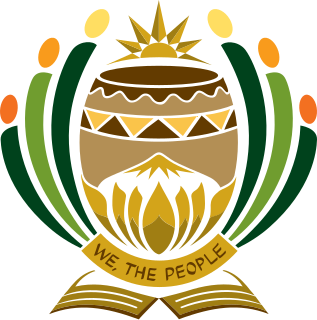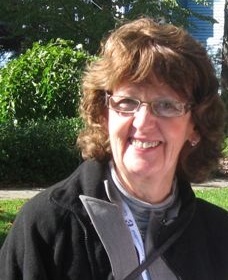Notes
- ↑ There have not yet been any senators whose surname begins with "X"
The following are lists of members of the Senate of Canada:

Sir Mackenzie Bowell was a Canadian newspaper publisher and politician, who served as the fifth prime minister of Canada, in office from 1894 to 1896.

The Senate of Canada is the upper house of the Parliament of Canada. Together with the Crown and the House of Commons, they comprise the bicameral legislature of Canada.

The 38th Canadian Parliament was in session from October 4, 2004, until November 29, 2005. The membership was set by the 2004 federal election on June 28, 2004, and it changed only somewhat due to resignations and by-elections, but due to the seat distribution, those few changes significantly affected the distribution of power. It was dissolved prior to the 2006 election.

The Parliament of the Republic of South Africa is South Africa's legislature; under the present Constitution of South Africa, the bicameral Parliament comprises a National Assembly and a National Council of Provinces. The current twenty-seventh Parliament was first convened on 22 May 2019.
Official party status refers to the Westminster practice which is officially used in the Parliament of Canada and the provincial legislatures of recognizing political parties. In official documents, this is sometimes referred to as being a recognized party. The type of recognition and threshold needed to obtain it varies. However, the most coveted privileges are funding for party research offices and the right to ask questions during Question Period.

The 35th Canadian Parliament was in session from January 17, 1994, until April 27, 1997. The membership was set by the 1993 federal election on October 25, 1993, and it changed only somewhat due to resignations and by-elections until it was dissolved prior to the 1997 election.
The representative of the Government in the Senate is the member of the Senate of Canada who is responsible for introducing, promoting, and defending the government's bills in the Senate after they are passed by the House of Commons. The representative is appointed by the prime minister.

The 34th Canadian Parliament was in session from December 12, 1988, until September 8, 1993. The membership was set by the 1988 federal election on November 21, 1988, and it changed only somewhat due to resignations and by-elections until it was dissolved prior to the 1993 election.

The 31st Canadian Parliament was a briefly lived parliament in session from October 9 until December 14, 1979. The membership was set by the 1979 federal election on May 22, 1979, and it was dissolved after the minority government of Joe Clark failed to pass a Motion of Confidence on December 13, 1979. The dissolution of parliament led to the 1980 federal election. Lasting only 66 days from first sitting to dissolution, and only nine months from election to election, the 31st was the shortest parliament in Canadian history.

The 32nd Canadian Parliament was in session from April 14, 1980, until July 9, 1984. The membership was set by the 1980 federal election on February 18, 1980, and it only changed slightly due to resignations and by-elections prior to being dissolved before the 1984 election.

The 39th Canadian Parliament was in session from April 3, 2006 until September 7, 2008. The membership was set by the 2006 federal election on January 23, 2006, and it changed only somewhat due to resignations and by-elections. The Parliament was dissolved on September 7, 2008, with an election to determine the membership of the 40th Parliament occurring on October 14, 2008.

Marjory LeBreton, is a former Leader of the Government in the Senate of Canada, a cabinet-rank position; and past national chair of Mothers Against Drunk Driving in Canada. She worked with four leaders of the Progressive Conservative Party of Canada - John Diefenbaker, Robert Stanfield, Joe Clark and Brian Mulroney - from 1962 to 1993 before being appointed to the Senate on the advice of Mulroney. She sat as a Progressive Conservative Senator from her appointment until moving with most of her caucus colleagues to the new Conservative Party of Canada in 2004, of which she was soon elected to Chief Whip. She served as an advisor to then opposition leader Stephen Harper during the 2006 election, which the Conservative Party won. After the election, she was named to the cabinet position Leader of the Government in the Senate. On July 4, 2013, LeBreton announced she would not continue in the position as of the next cabinet shuffle, which occurred later that summer. She retired from the Senate upon reaching her 75th birthday on July 4, 2015.

The 36th Canadian Parliament was in session from September 22, 1997, until October 22, 2000. The membership was set by the 1997 federal election on June 2, 1997, and it changed only somewhat due to resignations and by-elections until it was dissolved prior to the 2000 election.

The 40th Canadian Parliament was in session from November 18, 2008 to March 26, 2011. It was the last Parliament of the longest-running minority government in Canadian history that began with the previous Parliament. The membership of its House of Commons was determined by the results of the 2008 federal election held on October 14, 2008. Its first session was then prorogued by the Governor General on December 4, 2008, at the request of Prime Minister Stephen Harper, who was facing a likely no-confidence motion and a coalition agreement between the Liberal party and the New Democratic Party with the support of the Bloc Québécois. Of the 308 MPs elected at the October 14, 2008 general election, 64 were new to Parliament and three sat in Parliaments previous to the 39th: John Duncan, Jack Harris and Roger Pomerleau.